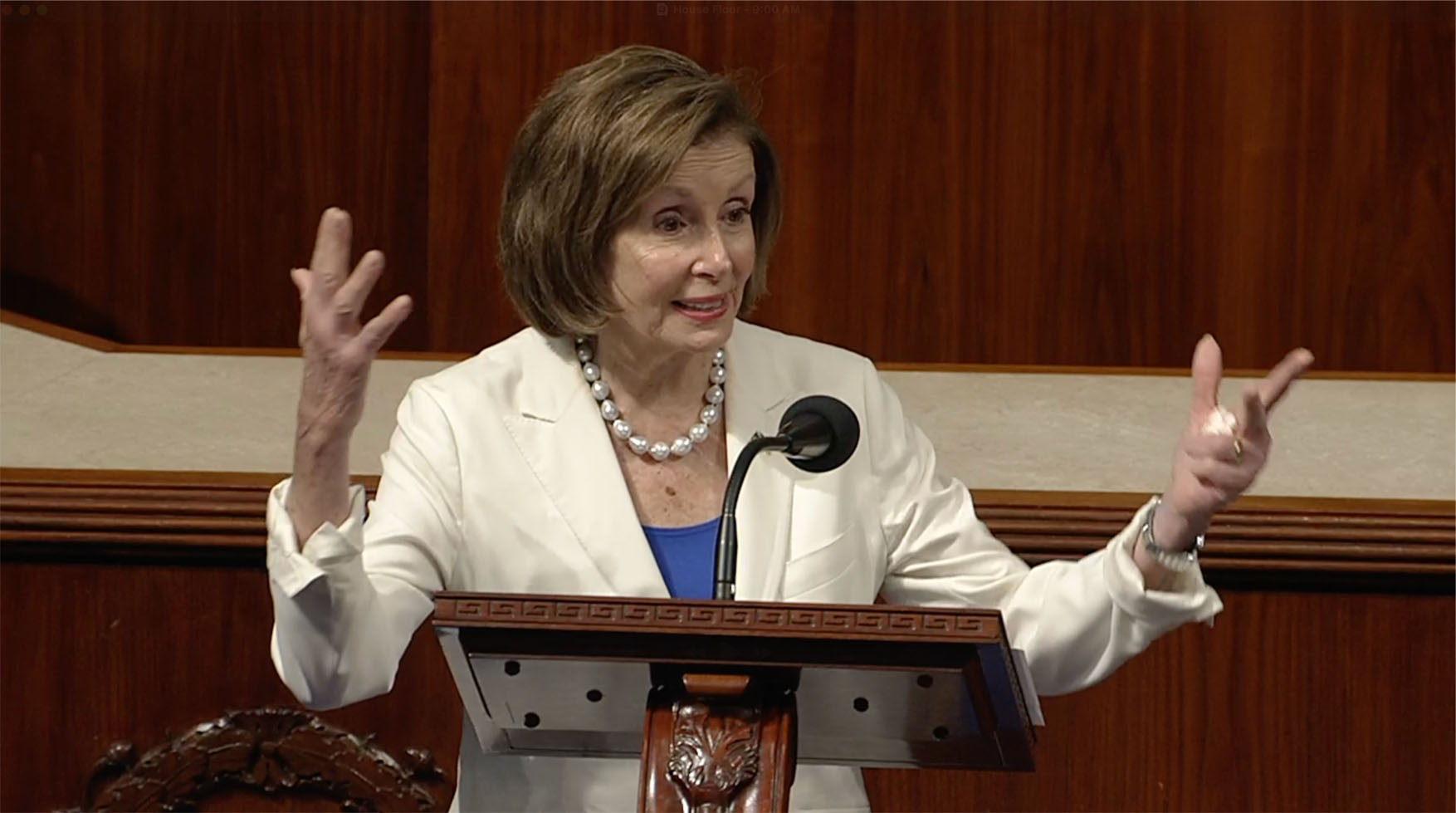Pelosi on the 80th Anniversary of the United Nations: "One of the world's greatest organizations for peace and the advancement of humanity."
Washington, D.C. – Today, Speaker Emerita Nancy Pelosi commemorated the 80th anniversary of the signing of the United Nations Charter, recognizing the founding of one of the world’s most enduring institutions for peace and global cooperation.
Speaking on the House Floor, she reflected on the historic role San Francisco played in hosting the 1945 conference that gave birth to the U.N., underscoring the pride felt by the city and its people.
Watch her full remarks here.

Read the transcript of Speaker Emerita Pelosi's Floor remarks below:
Speaker Emerita Pelosi. Mr. Speaker, I rise today to celebrate the 80th anniversary of the signing of the United Nations Charter and the establishment of one of the world's greatest organizations for peace and the advancement of humanity.
As a representative of San Francisco, this anniversary has a particular pride for the people of my city and for me, for it was in San Francisco that we played host to the Grand Conference of Delegates that wrote the U.N. Charter.
And it was in San Francisco's War Memorial and Performing Arts Center on June 26, 1945, that the charter was signed. On that day, President Harry Truman came to the plenary session to offer his congratulations and his hopes for the future of a new United Nations.
He said, 'You have created a great instrument for peace and security and human progress in the world.'
President Truman said that. ‘And the world must use it now.’ The world must use it now. It was true then. It is true now. Eight decades later, 193 member states have ratified the charter. That day was 50, and then Poland joined making it 51.
Now 193 members have ratified the charter. The world's greatest leaders and thinkers have been among the United Nations representatives.
In 1946, United Nations General Assembly delegate and former First Lady Eleanor Roosevelt helped draft the Universal Declaration of Human Rights, which builds on President Franklin Roosevelt's commitment to freedom of speech, freedom of religion, freedom from fear and freedom from want—for all people.
Throughout its history, the United Nations has worked to end disease, hunger and poverty. It has sought to advance human rights, human dignity and opportunities for women and girls.
It has focused the world's attention on the plight of refugees and the urgency of the climate crisis with its Sustainable Development Goals. It has been a bulwark for global peace and peacekeeping.
And in striving to fulfill the ideals and promises of its charter, the United Nations, related agencies, programs and staff had been awarded the Nobel Peace Prize 11 times.
In 1950, Ralph Bunche, an American, became the first person affiliated with the new organization to be awarded the Nobel Peace Prize. In his acceptance speech, he remarked. 'I am but one of many cogs in the United Nations. The greatest peace organization ever dedicated to the salvation of mankind's future on Earth.'
Under the leadership of Secretary-General António Guterres, the United Nations remains a strong, resolute, unwavering voice for peace in a world burdened by war.
And today, the United Nations is convening a plenary meeting of the General Assembly in New York at the United Nations Headquarters to – in their quote, 'to revive the spirit of San Francisco and once again embrace the ideals that united humanity during the darkest hour, reaffirming our commitment to those values into the future.’
May we recapture the spirit of solidarity that existed in San Francisco 80 years ago as United Nations continues to stand as a beacon of peace for the next 80 years and beyond.
Since I have a little more time, I want to just tell a personal story. When I was in high school – this is like a dozen years after the founding of the United Nations – President, then-Senator Kennedy came to Baltimore for a great event. It was the United Nations Association of Maryland dinner honoring someone named Jacob Blaustein, a civic leader in our community.
My father was the mayor of Baltimore. My mother, knowing how much I admired the Kennedy family because we were taught by Irish Catholic nuns from Boston—even in Baltimore, she said 'I don't think I feel well going to the dinner tonight. Why don't you take my place?'
Taking her place meant sitting next to Senator Kennedy for this dinner where he was giving the keynote address. There's a picture of that occasion. Why I tell the story is, I was a member of United Nations Youth in high school, was like a junior in high school at the time.
And there was a table of United Nations Youth. And they came over to me and said, 'Since you're a member of United Nations Youth, we invite you to sit with us at our table.'
Oh, my gosh. John F. Kennedy, United Nations Youth. As conflicted as I was, how could I leave a vacant seat next to Senator Kennedy of Massachusetts, soon to become President of the United States?
In any event, as I said at the beginning, this holds a special particular pride for me personally as well as officially.
I yield back.